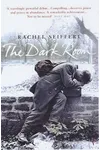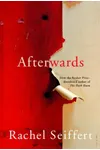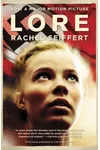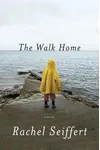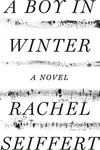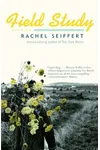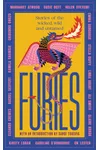Picture a British storyteller who weaves tales of ordinary lives caught in history’s grand upheavals—meet Rachel Seiffert! Born in 1971 in Oxford, this London-based novelist has captured hearts worldwide with her poignant, empathetic narratives. Her debut, The Dark Room, snagged a Man Booker Prize nomination, and her works, translated into 18 languages, explore the human cost of conflict with a tender, unflinching gaze.
Seiffert’s bilingual upbringing, with a German mother and Australian father, infuses her stories with a unique cross-cultural lens. From war-torn Germany to post-Communist Poland, her characters grapple with guilt, memory, and resilience, making her a literary voice that resonates deeply in today’s fractured world.
The Making of Rachel Seiffert
Raised in Oxford and later settling in London, Rachel Seiffert grew up straddling two worlds—German and English. Her bilingual roots sparked a fascination with identity and history, themes that pulse through her work. Before penning novels, she worked as a film editor, honing a sharp eye for detail that later defined her spare, evocative prose. Her leap into writing came with The Dark Room in 2001, a bold debut that thrust her into the literary spotlight.
Influenced by authors like Günter Grass, Seiffert’s storytelling blends historical weight with personal intimacy. Her early career as a film editor and director also shaped her ability to craft vivid, cinematic scenes, setting her apart as a novelist who paints with words.
Rachel Seiffert’s Unforgettable Stories
Seiffert’s bibliography is a tapestry of human struggle and hope. Her debut, The Dark Room (2001), a trio of stories about Germans navigating the Nazi era and its aftermath, earned a Booker Prize shortlist spot and inspired the acclaimed film Lore. Its lean prose and emotional depth set the tone for her career. Field Study (2004), a short story collection, explores post-Communist Eastern Europe, with tales of quiet discomfort and unspoken loss, earning a PEN International award.
Afterwards (2007) delves into the lingering trauma of war, following a British soldier haunted by his actions in Northern Ireland. Longlisted for the Women’s Prize for Fiction, it showcases Seiffert’s knack for unpacking guilt and moral complexity. The Walk Home (2014) shifts to Glasgow, tracing a family fractured by love and betrayal, while A Boy in Winter (2017) confronts the Holocaust’s moral dilemmas in Nazi-occupied Ukraine, earning praise as a New York Times Notable Book.
Seiffert’s style is disciplined yet sonorous, like a cello played in the dark. Her sparse prose avoids melodrama, letting visual details and character bonds carry the weight of history. Themes of guilt, forgetting, and the inescapability of the past thread through her work, making each story a meditation on humanity’s resilience.
Why Rachel Seiffert Matters
Rachel Seiffert’s impact lies in her ability to humanize history’s darkest chapters. By focusing on ordinary people—whether a photographer in 1930s Berlin or a Ukrainian boy in 1941—she bridges past and present, urging readers to reflect on their own moral choices. Her novels, taught in universities and translated globally, have reshaped historical fiction by emphasizing personal over political narratives.
Beyond her books, Seiffert’s work as a creative writing tutor and writer-in-residence in London schools amplifies her legacy. Through programs like First Story, she nurtures young voices, particularly in underserved communities, proving her commitment to storytelling as a force for connection and healing.
- Born: 1971, Oxford, England
- Key Works: The Dark Room, Field Study, Afterwards, A Boy in Winter
- Awards: Booker Prize shortlist (2001), E.M. Forster Award (2011), PEN International Award (2004)
Snag The Dark Room or A Boy in Winter and dive into Rachel Seiffert’s haunting, hopeful world of historical fiction!
